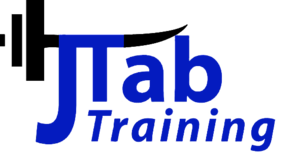I turn 35 in 5 months and I’ve never weighed more.
Well, unless you could when I was pregnant but really that’s more like a person and a half. It’s the post pregnancy weight I’m having the problem with.
I’ve never struggled with exercise. It’s always been something that I enjoyed, and something that I do pretty regularly. Besides twice a week sessions at JTab, I ride my Peloton 2 days a week and do Barre body weight classes at least once. Add in 2 VERY active kids including a 1 year old who seems intent on trying to slide down the stairs head first, and I’m pretty much in constant motion.
My issues with my weight lie solely in my nutrition (or lack there of). Between these wild children, 2 business, and trying to fit in exercise and a social life, that leaves very little time for prepping, cooking and even consuming food. Most of my meals are grabbed out of a cabinet, leftovers my kids didn’t eat, or take out.
It’s this complete lack of regard of what food I’m putting into my body that lead to the position I am now. After having my second baby I just never lost the extra weight that I packed on, and can barely sip most of my jeans up.
So, at the beginning of 2023, after yet another day of staring at my closet and hating everything I put on, I decided to finally do something about it. I am going to be 35 this year. I have 2 young children and 2 growing businesses. I want to be able to keep up and enjoy all of that. Plus I didn’t want to have buy brand new clothes…
With all that in mind, I met with Joey to talk through what steps I could start making to turn things around and feel better at 35 than I did in my 20’s. At first it can feel really overwhelming, but we decided to tackle small pieces at a time, and build on those. While the goal may be to lose weight, it’s also to create a sustainable lifestyle that leads to long term health.
The first think I needed to implement in my routine was structure and accountability. Without a solid plan, or “rules”, around what I was eating, I knew it would be nearly impossible to break all the bad habits I had built over the past year. That’s why I chose Intermittent Fasting (more on that soon). While eventually I will lighten up on things, I know that right now the strict structure around when to eat, how many calories to eat, and how much max’s (or minimums) I needed to hit each day in my Macros is the best chance I have for success. I’ll dive into this plan in future blogs after I get a few weeks under my belt.
The second part of that equation is the accountability part. I also know that if I don’t have someone to answer to, it’s way easier to let things slip. While Joey will be a part of that, this blog (and anyone reading it) will be a part of that also. It’s the idea of telling a group of people what I ate that week, that makes me second guess my portion sizes.
So, with all that set, I’m going to start of this journey by telling you all my current weight and goals. That’s right. I’m going to put my actual weight out on the internet for all to read…… 168.4. Whew. I did it.
Now, with that over, I can look forward to my goal of getting down to 145 by my 35th birthday in May. And you’re coming along for the ride!

